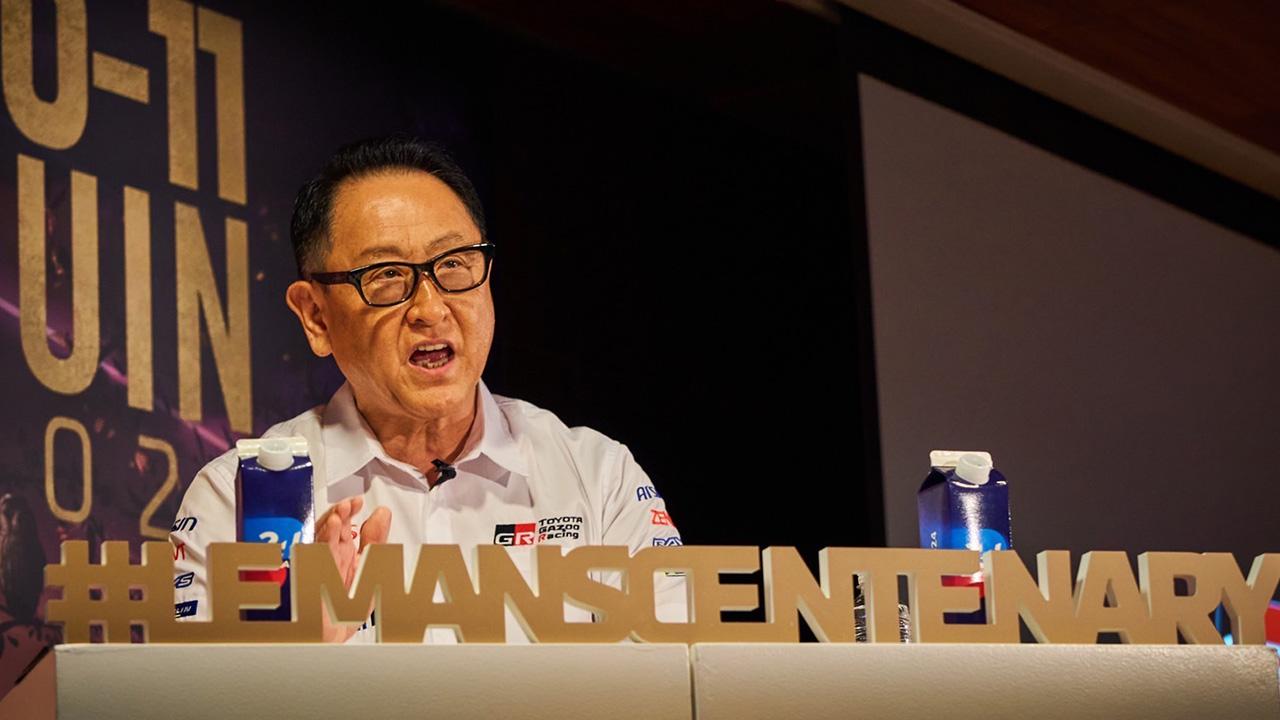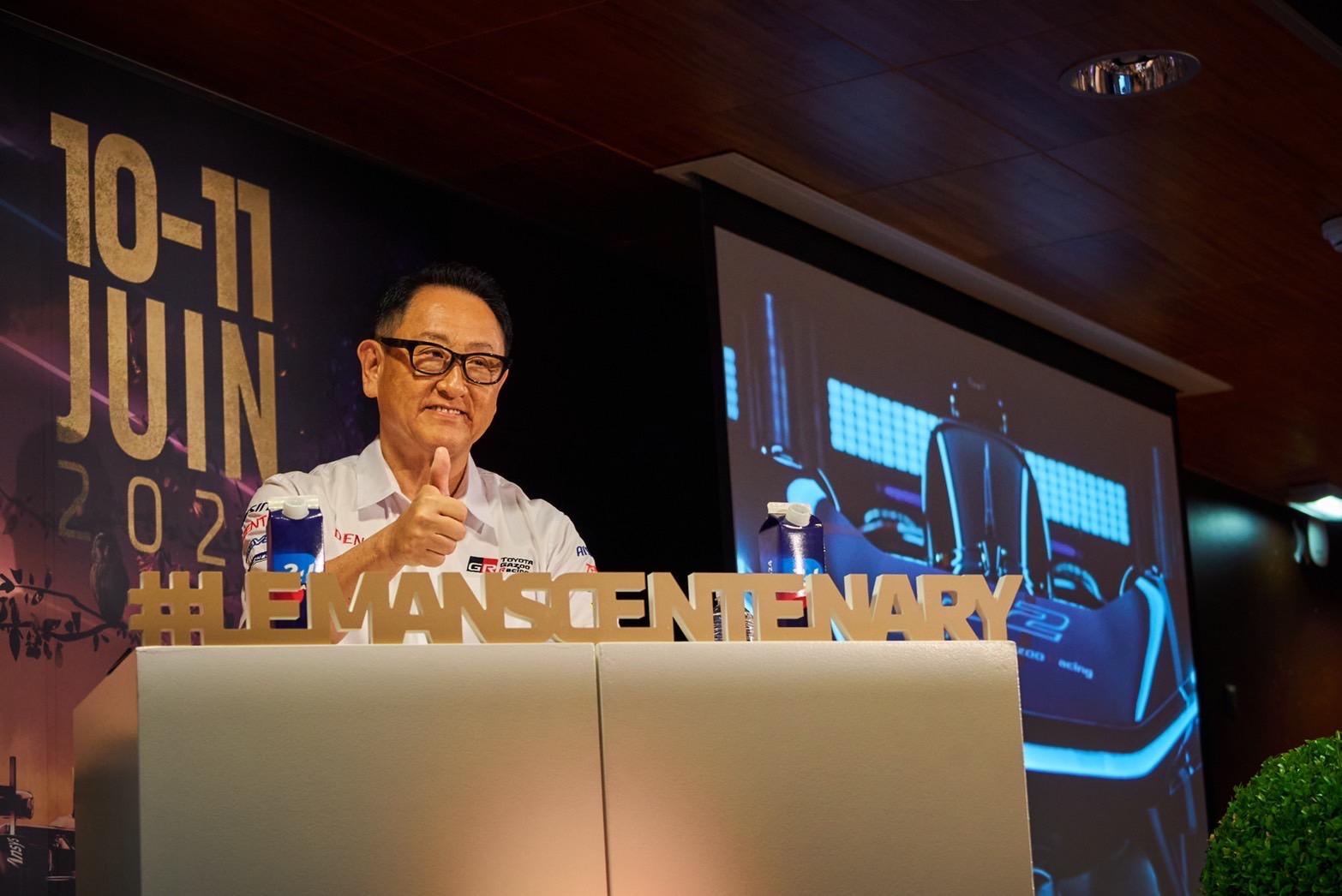
A day before the race, Toyota Times caught up with Morizo for a brief chat that provided insights into what's crucial for the future of motorsport.

Toyota Times managed to speak with Morizo on the day before the 24 Hours of Le Mans. Our conversation centered on Balance of Performance (BoP) adjustments in racing.
The topic was prompted by a recent BoP announcement, made by organizers ahead of the race, which saddled Toyota with a 37 kg handicap. On the Le Mans course, this extra weight would make the team’s lap times more than a second slower.
In last year’s race, Toyota completed 380 laps within the race’s 24 hours. Over 380 laps, that one-second handicap would add up to 6 minutes and 20 seconds.
If we translate those 6 minutes and 20 seconds into distance based on last year’s qualifying time of 3:24.451 (#8, Hartley), that yields a difference of some two laps by the end of 24 hours.
These BoP adjustments were announced just 10 days out from the race. Having already departed for Le Mans, the team was left with no chance to make modifications. Even accounting for Toyota’s three-win streak heading into Le Mans, the handicap felt rather severe, and the announcement’s timing too sudden.
It was under these circumstances that Morizo flew from Japan to join the team heading to Le Mans. The following week he would be back in his role as Chairman Toyoda for Toyota’s annual shareholders’ meeting.

Given our limited time to speak with Morizo, Toyota Times asked him just one question: “What did you think about the recent BoP?”
Morizo
I thought, is this how badly they want other teams to win? That’s how everyone on the team feels, and perhaps many fans do, too.
With Audi pulling out (of Le Mans) in 2016 and Porsche following suit in 2018, only Toyota was left to compete in the top category. When other manufacturers finally returned this year, I wanted to welcome them wholeheartedly.
What we are doing out there is competing as athletes—that’s what makes it motorsports. It is certainly not motor politics, where carmakers come to push their own agendas. I wanted the drivers, engineers, and mechanics to go into the race with their sights on the next 100 years. But watching the qualifying, I felt that politics had won.
(Unlike qualifying, which is decided on a single lap time,) the race is run over 24 hours. My team and I will give it our all, even in the face of questionable politics. That’s what I told Kamui, our team principal, and the rest of the team. I want the fans to see us putting up an honest fight.
At any rate… I don’t want to get involved in closed-door political contests. I want to compete out in the open, in front of car-loving fans.
In the world of sports, you can’t have people questioning how far others will go to win. Rivals competing in earnest... that's what sport is all about, and that's what fans want to see. Without that, you lose the passion.
Two weeks ago, I myself raced in the Fuji 24 Hours. While many people around the world talk as though BEVs are the only option, I’ve kept competing to help create a hydrogen society, believing that hydrogen offers another way forward.
Hydrogen tended to be associated with explosions and struggled to shake off that dangerous image as a fuel. By jumping behind the wheel myself and racing out in the open, I believe I was able to change that common perception so that people see hydrogen not as a danger, but as our future.
Last year, I was able to drive a hydrogen car at the WRC event in Belgium. At the time, there were many restrictions in place. But when they asked who was going to drive and I said, “Me, Akio Toyoda,” they said, “Sure, go right ahead.”
The future is shaped by who acts and where. This year Le Mans celebrates its centenary. I see this as a chance for all of us to create the future, the next 100 years.
We are going to put the qualifying behind us and throw everything we’ve got at the 24 hours of the main event.
What I sincerely wish for is simply that athletes be allowed to play their sports. I’ve come to realize that this is truly the key to creating the next 100 years of motorsports.
I too am an athlete, and I wanted to say this on behalf of all those other athletes. No doubt athletes and fans alike just want to enjoy sports.
Although Morizo said he spoke on behalf of athletes, he also seemed to be speaking for fans.
For this year’s Le Mans, TOYOTA GAZOO Racing has adopted the slogan “Forever We Race.” Behind these words lies a determination to keep racing alive in the age of carbon neutrality, and to do so by pursuing many options, including hydrogen.
And yet, the ability to continue racing forever also depends on something else—athletes facing off in genuine sporting competition, and the thrill of victory, or the bitterness of defeat, that comes with it. This is what excites and captivates fans. If motorsport fails to stir such emotions, it will cease to move people, no matter how well we preserve the roar and rumble of engines for future generations. Morizo’s interview drove that fact home keenly.

